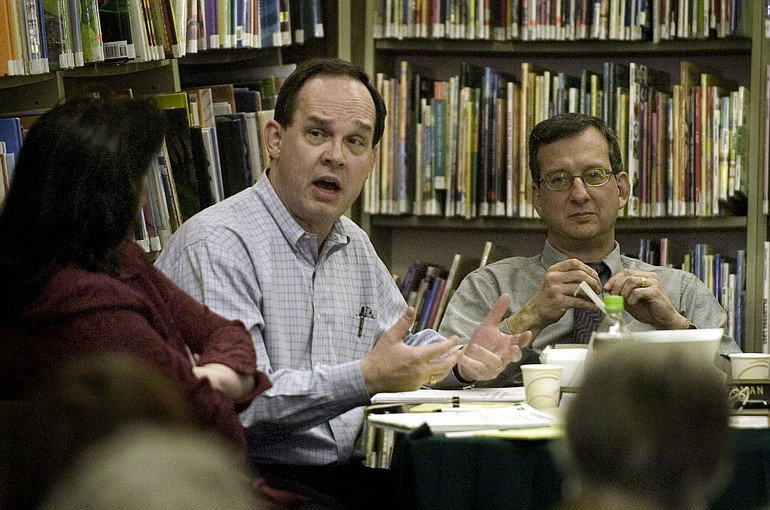Many public initiatives that aim to create jobs and grow new businesses center on cash-hungry, fast-moving startups, while nonprofits often get overlooked as a source of innovation and entrepreneurship, says Vancouver City Councilman Jack Burkman.
Elected to his second term last November, Burkman has shifted his focus to nonprofit volunteer work, business consulting and personal coaching in an effort to create jobs and grow Clark County’s economy. He is vice chairman of the Clark College board of trustees, served for seven years on the Fort Vancouver Regional Library District board and also gives pro bono advice to the Urban Entrepreneurs Network, a new organization for women-owned and minority-owned small businesses.
Drawing on 28 years of experience with Hewlett-Packard Co. in Vancouver, the councilman says he gives the same business development advice to nonprofits as he does to for-profit companies.
“We look at all these really tiny nonprofits and think they’re not really businesses, but they are,” Burkman said.
The Columbian on Friday talked with Burkman about the link between the nonprofit world and business innovation and growth in Clark County:
From the city’s perspective, what is the goal of the work you’re doing with nonprofits?
The city is a member of the Urban Entrepreneurs Network because that helps facilitate the creation of new business, and very small business, in particular, with minorities and women. It’s a segment that might not have strong access to traditional resources. That’s one slice. There are so many difference slices in our community.
Is the network an accelerator service for small businesses?
Small organizations like this are weak in networking. They can use as much support as possible. There are opportunities for women and minority businesses in government work. How do they learn about it and mutually support each other? They’ll often grow into something significant. How do you fuel that? … It’s a combination of connection with people and organizations and the city can do quite a bit of that.
Is there such thing as a nonprofit startup?
Talk to (former City Council member) Pat Jollota because she just started a foundation; that’s a nonprofit startup. And Support for Early Learning and Families just formed a board of directors. It’s just like any business that starts from a concept and matures and gets bigger.
What can startup businesses learn from startup nonprofits and vice versa?
There’s still the same basics. You have to have a business plan. You have to look at who your clients are and who your target market is. There are a lot of parallels. You still have a board of directors of some kind on both sides. You still have the same processes. Still have to determine a mission and a niche, because it could get too unwieldy. You have to stay focused. The process is very much the same. You go to a venture capital (group) and sell them on your ideas. Or you go to foundations and acquire grants for why your idea is good. The difference is at the end of the day, the profit isn’t distributed to people, the profit is put back into the venture.
And they’re not developing a widget.
No it’s a service industry, almost exclusively. But there’s a lot of service industries in the U.S. When does technology become a service? What if somebody wants to start up a computer maintenance and repair company? Is that service or is that a widget? They’re not building a product, per se … In innovation, what people generally think of is traditional product generation and sales. But they all employ people.
Should the city encourage more nonprofit startups?
I don’t think the city has been that involved in the nonprofit side. It’s not usually something government does (to encourage) economic development. I think it’s a sense of scale. There’s a lot more growth potential, faster, (with for-profit companies), but there’s a lot of governmental needs that are met by the nonprofits.



